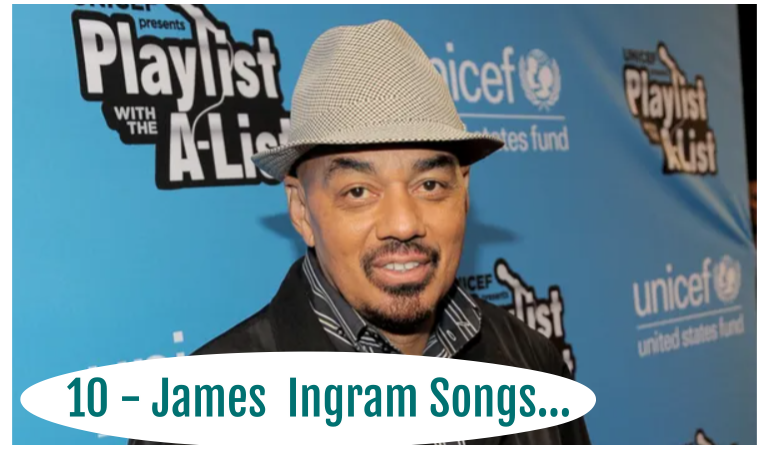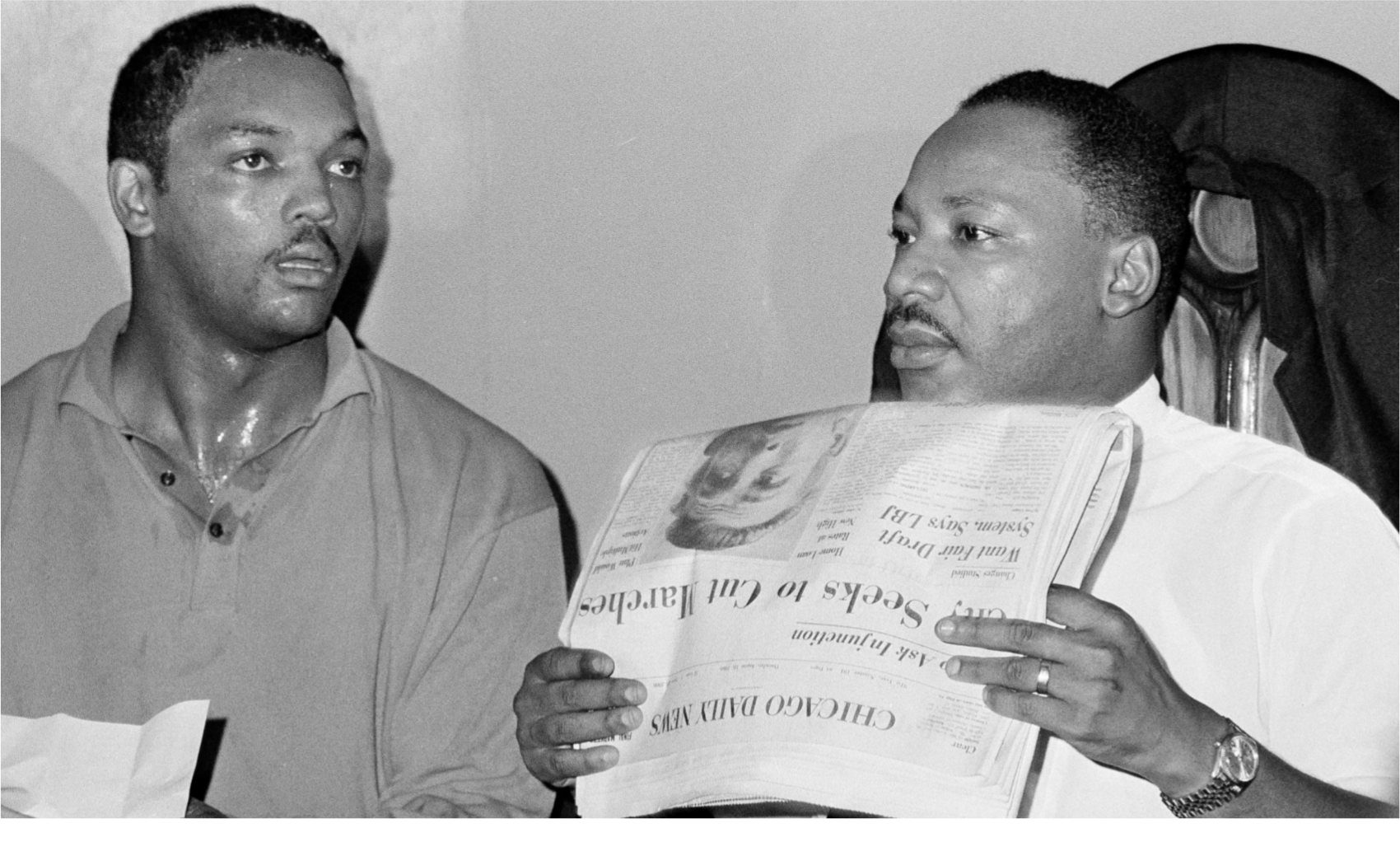(ThyBlackMan.com) James Ingram’s voice feels like home—warm, familiar, and undeniably soulful. From the very first note, he had the rare ability to cut through the noise and reach right into the heart. He didn’t just sing songs; he felt them—wrapping every lyric in velvet and vulnerability. Whether pleading for one more chance, celebrating the quiet joy of fatherhood, or offering timeless advice on love, Ingram’s voice carried a grace that few could match.
In the golden age of R&B and adult contemporary music, Ingram stood as a vocalist’s vocalist. His tone was smooth as silk but never slick—depth behind the polish. He brought a certain kind of dignity to ballads, where emotion didn’t have to mean excess. That’s what made him special: the way he honored the song. So here are ten of his most powerful, heartfelt, and sometimes overlooked tracks—songs that still speak volumes, decades later. Songs that remind us why music isn’t just something you hear, but something you feel.

1. “Just Once”
Produced by Quincy Jones and featured on his seminal album The Dude, “Just Once” marked James Ingram’s debut as a lead vocalist—and what a thunderous debut it was. Before this, Ingram had worked in the background as a demo singer, but this moment introduced him to the world as a powerhouse vocalist with uncommon emotional depth. Right out the gate, his voice was layered with longing, regret, and hope, all delivered in a way that made listeners feel like they were right there in the middle of his heartbreak.
“Just Once” taps into the confusion and pain that come when love falters despite best intentions. The lyric, “I gave my best, but I guess my best wasn’t good enough,” has become one of the most quoted lines in soft rock and R&B ballads—a sign of its universal resonance. Ingram delivers it not with bitterness, but with a sense of human frailty. His voice rises and falls like waves of emotion, showcasing a controlled power that lets the heartbreak simmer before it spills over.
The production, under the masterful hand of Quincy Jones, wraps Ingram’s voice in a bed of piano flourishes, gentle string arrangements, and subdued horns. The balance is so delicate, it almost feels like the music is holding its breath, waiting for Ingram’s next line. This gives the track a cinematic quality—each verse another scene in a love story gone awry.
“Just Once” is more than a love song. It’s a moment of personal reckoning, an emotional autopsy of a relationship that once held promise. In the age of overproduced heartbreak anthems, it stands out for its restraint and rawness. Listening today, it’s hard not to reflect on your own moments of romantic failure and wonder, as Ingram does, if things could’ve turned out differently.
2. “One Hundred Ways”
Another standout from Quincy Jones’ The Dude, “One Hundred Ways” is James Ingram at his most romantic and introspective. The track earned him a Grammy Award for Best Male R&B Vocal Performance, and for good reason—Ingram gives a masterclass in subtlety, warmth, and emotional intelligence. The song is essentially a guidebook on how to cherish someone, framed in a melodic groove that never feels preachy or overbearing.
This isn’t just a love song; it’s an instruction manual for long-lasting connection. Ingram croons, “Find one hundred ways,” and with each verse, he lays down small, actionable truths. Compliments, attentiveness, and small gestures—these aren’t just lyrics, they’re life philosophies. What sets this apart from typical R&B love ballads is that it’s not just about seduction—it’s about sustaining love with care and consistency.
The arrangement is graceful and deliberate. Soft guitar licks, brushed drums, and delicate strings complement Ingram’s restrained vocal, which never resorts to vocal theatrics. Instead, he leans into the song’s gentle groove and lets his voice glide like velvet over the production. It creates a dreamy, immersive mood, ideal for evenings filled with candlelight and conversation.
Even four decades later, “One Hundred Ways” hasn’t lost its power. It’s especially valuable in a digital age when swipes and likes have replaced genuine connection. The song serves as a reminder that romance is in the details—and that love, when nurtured with care, can be both simple and extraordinary.
3. “Yah Mo B There”
Few tracks in the R&B/pop realm blend spirituality, social consciousness, and groove like “Yah Mo B There.” A dynamic collaboration with Michael McDonald, the song became a crossover hit and earned Ingram a Grammy. The title, a stylized expression of “God will be there,” encapsulates the theme of divine presence and perseverance. What makes this track so special is how it carries a spiritual message without losing its accessibility—or its funk.
The interplay between Ingram and McDonald is the heartbeat of this track. Their voices are distinct—Ingram’s is smooth and soul-rich, while McDonald’s is gritty and urgent. Together, they create a vocal conversation that mirrors the song’s message: reassurance in the face of adversity. Ingram’s tone, in particular, feels almost pastoral—like a sermon delivered in melody rather than words.
Musically, the song is an ’80s masterwork. The bassline is thick and rubbery, the synths shimmer with layered harmonies, and the rhythm section pops with infectious energy. Despite the groove, the song never loses sight of its message. Each chorus is a call to faith, strength, and collective belief. The energy builds without ever becoming chaotic—a testament to both vocalists’ restraint and skill.
Today, “Yah Mo B There” could easily serve as the anthem for those navigating uncertain times. Whether you interpret “Yah” as a stand-in for God, the universe, or simply love, the song’s promise of divine presence is comforting. It bridges the sacred and the secular with infectious optimism, proving that a message of hope doesn’t have to come wrapped in solemnity—it can dance, too.
4. “I Don’t Have the Heart”
Released as part of Ingram’s It’s Real album, “I Don’t Have the Heart” represents the peak of adult contemporary balladry in the early ’90s. The track shot to No. 1 on the Billboard Hot 100, cementing Ingram’s place among the genre’s greats. But its commercial success is just one piece of the story—what truly sets it apart is its emotional honesty and maturity.
At its core, this song is about the agony of withholding love—not because of cruelty, but because of compassion. Ingram sings from the perspective of someone who recognizes that the love offered to him is real, but he cannot return it. The chorus—“I don’t have the heart to hurt you”—becomes a mantra of guilt, empathy, and reluctant clarity. It’s a powerful shift from typical breakup songs that focus on blame or betrayal.
Ingram’s vocal delivery is a study in quiet devastation. There’s no yelling, no angry crescendo—just a man caught between kindness and truth. His voice quivers in just the right spots, and when he finally opens up in the chorus, it feels earned, not showy. That ability to hold back until it counts is what gives the song its emotional gravity.
Even now, “I Don’t Have the Heart” resonates with listeners because it explores emotional complexity with grace. Relationships don’t always end because of wrongdoing—sometimes they end because of timing, misalignment, or faded feelings. Ingram captures that with startling accuracy, making the song not just relatable, but deeply cathartic. It reminds us that sometimes the kindest thing you can do is walk away, even when it breaks your own heart too.
5. “Somewhere Out There”
A duet with Linda Ronstadt for the animated film An American Tail, “Somewhere Out There” is the kind of ballad that transcends both genre and audience. Originally crafted for a children’s movie, the song took on a life of its own, becoming a love anthem for people of all ages. Winning the Grammy for Song of the Year and nominated for an Oscar, the track proves how music rooted in heartfelt simplicity can become timeless. James Ingram’s contribution is pivotal—his voice brings a grounded warmth that balances the ethereal arrangement and adds human depth to the cinematic sweep.
The chemistry between Ingram and Ronstadt is subtle, but it’s there in the quiet yearning and mutual respect their vocals exude. Unlike many duets where singers battle for dominance, this one is more of a delicate waltz. When Ingram takes the spotlight, his voice is filled with quiet hope and emotional texture, almost like a lullaby meant to reassure a long-distance lover or a child dreaming of reunion. He doesn’t oversell the sentiment—he lets the tenderness speak for itself.
What truly elevates the song is its arrangement. Built around lush orchestral strings and gentle piano chords, the production gives it an almost fairytale quality. Yet within that dreamlike landscape is a real-world longing, one that resonates with listeners separated by geography, time, or even circumstance. The swelling violins match the swell of emotion in the bridge, underscoring the emotional high points without overpowering the vocal performances.
In 2025, “Somewhere Out There” remains relevant not only as a nostalgic favorite but as a go-to song for moments of reflection and emotional distance. Whether you’re missing someone or simply craving reassurance that love endures, the song serves as a melodic bridge between hearts. Its timeless message—that love remains strong no matter the miles—is as needed today as it was nearly four decades ago.
6. “How Do You Keep the Music Playing?”
Composed by Michel Legrand with lyrics by Alan and Marilyn Bergman, “How Do You Keep the Music Playing?” is more than a song—it’s an emotional thesis. Performed by James Ingram and Patti Austin, the track is a masterclass in vulnerability, touching on one of the most haunting fears in love: What if this doesn’t last? Ingram’s voice, with its soul-stirring texture, makes you feel that fear and the longing that accompanies it. It’s not just a question—it’s a confession whispered in the dark.
Ingram approaches each lyric with the precision of a poet. His phrasing lingers, particularly in lines like “How do you lose yourself to someone and never lose your way?” There’s a sincerity in his tone that makes the listener feel seen, as if their private doubts about love’s longevity have finally been articulated. His duet with Patti Austin doesn’t just echo these sentiments—it deepens them. Their voices seem to lean on each other, drawing emotional power from every pause and inflection.
Musically, the arrangement is elegant and emotionally loaded. Legrand’s score ebbs and flows like a tide, supporting the vocal narrative with swelling strings, subtle piano lines, and cinematic drama. The orchestration doesn’t overshadow the singers—it partners with them, lifting the emotional stakes to operatic heights. It’s the kind of song that demands active listening; every note matters, every breath is timed for impact.
Even in our current cultural climate—where quick love and instant gratification often dominate—this song dares to ask the long-haul questions. It’s ideal for those in mature relationships, people who’ve weathered the honeymoon phase and now seek to sustain something deeper. Ingram’s voice, grounded and wise, is like a trusted friend walking beside you through that inquiry. The music might not give you the answer, but it stays with you as you search for it.
7. “Always”
Buried within the Always You album, “Always” is a low-key gem that didn’t chart as highly as some of Ingram’s other hits but carries just as much emotional weight. The song finds Ingram in a zone of quiet certainty—no drama, no doubts, just a declaration of enduring love. It’s this simplicity that gives “Always” its staying power. While other ballads aim for soaring climaxes and big emotional gestures, this one finds strength in steady promises and subtle affirmations.
The production fits neatly into the quiet storm genre, with soft keyboard chords, smooth basslines, and restrained percussion that set a mellow groove. It’s the kind of track you can play on a rainy evening with a glass of wine or during a slow dance with someone you truly know. Ingram’s voice rides the groove with grace, never rushing, never dragging—just gliding. His delivery feels like a verbal embrace: warm, safe, and completely sincere.
Lyrically, “Always” is about consistency and presence in love. “I can’t remember loving anyone like this” he sings, not with desperation but with quiet conviction. In an era where pop music often glorifies chaos in relationships, Ingram offers an antidote—a musical promise that love can be calm, rooted, and resilient. His tone is not one of infatuation but of companionship, the kind of love that grows deeper with time.
In today’s world, where emotional availability is increasingly recognized as a cornerstone of healthy relationships, “Always” sounds almost prophetic. It’s the kind of love song you don’t realize you need until you hear it—grounded, grown-up, and refreshingly drama-free. James Ingram may not have written a chart-dominating anthem with this one, but he did something more lasting: he sang a truth many are still trying to live.
8. “Baby, Come to Me”
Originally released in 1981 but gaining widespread recognition after being featured on General Hospital, “Baby, Come to Me” is arguably one of the most tender duets of the 1980s. Sung with Patti Austin, the track took its time finding an audience, but once it did, it became a staple for romantic playlists and wedding receptions alike. It’s easy to see why: the song is a sensual, soulful invitation into intimacy, and Ingram’s voice is the key that unlocks that emotional door.
Ingram’s tone throughout the song is velvety and controlled. He doesn’t try to overpower; instead, he leans into the emotional phrasing, giving space for the song’s meaning to breathe. Patti Austin matches him note for note, their voices weaving together in ways that feel both effortless and electric. There’s an intuitive synchronicity here—neither artist dominates, and both allow the melody to lead them into shared emotional terrain.
Instrumentally, the song blends jazz sophistication with R&B smoothness. A soft piano anchors the harmony while understated percussion and saxophone flourishes give the track its sultry elegance. The pacing is unhurried, which makes every lyric feel intentional. You’re not just hearing a song—you’re eavesdropping on a romantic moment between two people who mean what they say.
Decades later, “Baby, Come to Me” still stands tall among duets for its emotional clarity and musical chemistry. In a time where many love songs feel manufactured or overly commercial, this track continues to resonate because it sounds real. There’s nothing forced or trendy here—just two phenomenal vocalists singing from the heart. And sometimes, that’s all you need.
9. “No Need to Say Goodbye”
This overlooked ballad from Ingram’s Always You album deserves far more attention than it receives. “No Need to Say Goodbye” stands apart from most breakup songs by refusing to descend into bitterness or blame. Instead, it’s a quiet acknowledgment of a love that has simply run its course. It’s about letting go without tearing down what once was beautiful—and that alone makes it a rarity in popular music. Ingram sings with the wisdom of someone who has lived through love, loss, and emotional growth.
Lyrically, the song shows remarkable emotional restraint. Lines like “We’ve said it all without a word / And I’ll remember every part of you” are imbued with a kind of mature tenderness. There’s no regret, only recognition of what the relationship gave—and the acceptance that it’s time to move on. In a world where dramatic exits and public callouts dominate the narrative of ending love, Ingram’s approach here feels almost revolutionary.
Musically, the song is intimate, stripped of grandeur to focus on sincerity. The instrumentation—subtle acoustic guitar, soft piano, and ambient textures—provides a meditative backdrop. This minimalist production choice allows Ingram’s voice to shine, and shine it does. He moves through the melody with a calm conviction, never oversinging, never forcing emotion. It’s the restraint that makes the message land even harder.
In 2025, “No Need to Say Goodbye” resonates deeply with anyone seeking closure without chaos. It’s for the lovers who part with respect, for the couples who understand that endings can be dignified. James Ingram offers no histrionics here, only humanity. And in doing so, he delivers one of the most emotionally evolved goodbye songs you’ll ever hear.
10. “A Baby’s Born”
James Ingram’s It’s Real album may be remembered more for its singles, but it’s “A Baby’s Born” that carries the project’s emotional crown. In this song, Ingram steps away from romance and heartbreak to celebrate something far more sacred: new life. It’s a reflective, almost spiritual ballad that honors the miracle of birth—not only in the literal sense, but as a metaphor for hope, love, and renewal. The track becomes a rare entry in R&B—a genre typically dominated by sensuality and heartbreak—that speaks of life’s beginning with awe and reverence.
Ingram’s vocals here are different from his usual soaring ballads. There’s a softness, almost a whisper, in the way he approaches each verse. You can feel him cradling each word the same way one might hold a newborn: gently, carefully, full of wonder. The lyrics celebrate the unity that comes with the arrival of a child, speaking to the transformative power of parenthood and the quiet joy it brings.
The instrumentation is equally delicate. Soft piano chords, subtle string arrangements, and atmospheric pads create a celestial soundscape that feels as intimate as a prayer. There’s no need for a drum track or flashy solos—this is a song that relies on emotional purity. It flows gently, mirroring the rhythm of a lullaby or the stillness of a hospital room in the early hours of a miracle.
For today’s listeners—especially new parents or those reflecting on the gift of life—“A Baby’s Born” is timeless. It’s the kind of song you can play during moments of gratitude, during baptisms, or simply while holding a child close to your chest. James Ingram didn’t just create a ballad here; he gave the world a benediction. And in doing so, he reminded us that love doesn’t end or begin with romance—it begins with life itself.
Listening to James Ingram today is like flipping through a photo album of the soul—each song a snapshot of love, longing, grace, or growth. His voice never shouted for attention. It didn’t need to. It drew you in with honesty, with warmth, with that rare emotional intelligence that so many artists chase but few truly possess. He made every note count, every silence meaningful, and every performance a moment worth remembering.
In a world that moves fast and feels loud, his music invites you to slow down and really listen—not just to him, but to yourself. These ten songs are more than hits or hidden gems—they’re emotional touchstones, still relevant, still resonant, and still real. So press play, lean back, and let James Ingram take you there… because some voices never fade. They just keep echoing in the heart.
Staff Writer; Jamar Jackson

















Leave a Reply